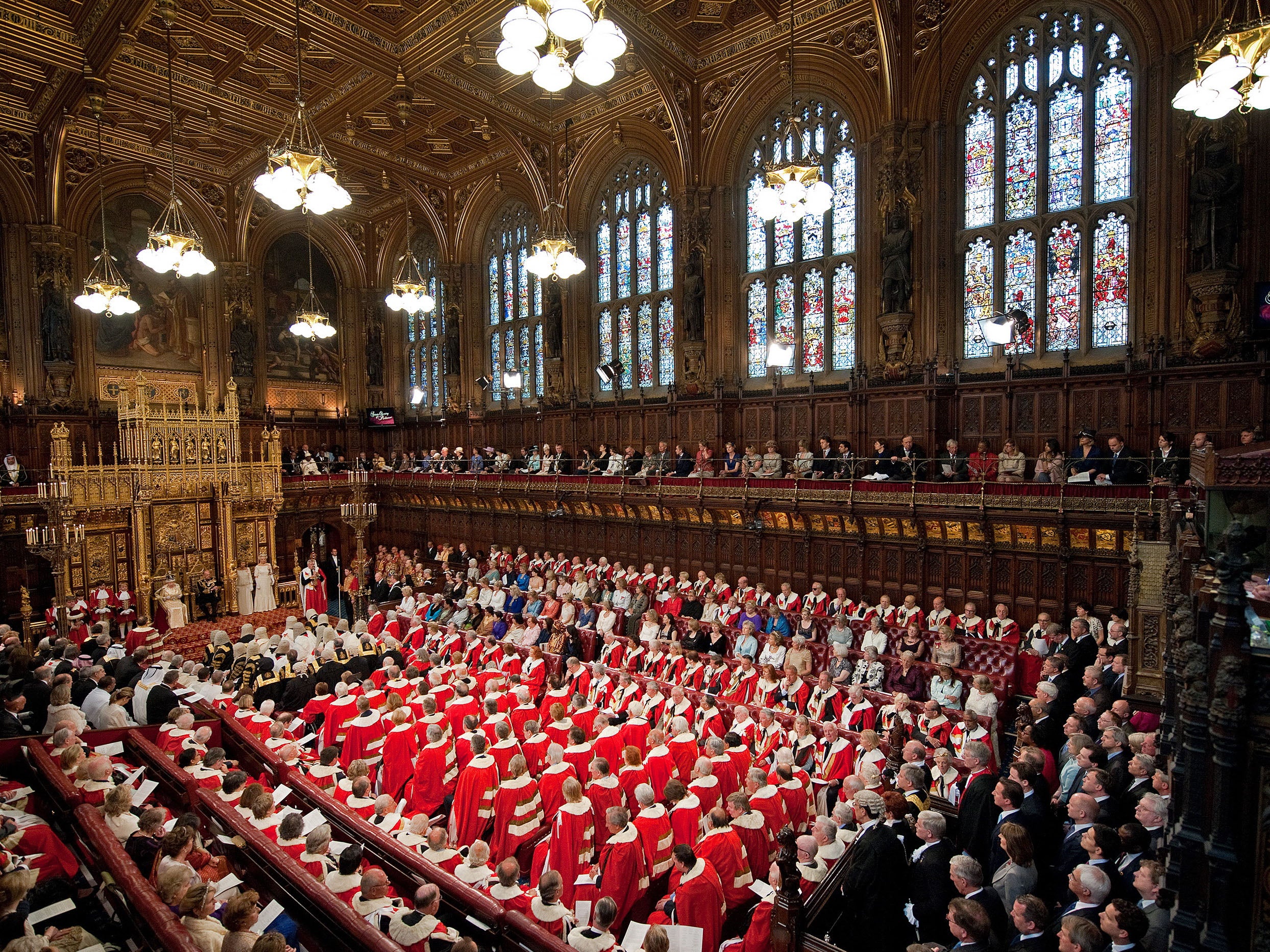Better off dead? The House of Lords seems to think the old are just an inconvenience to the young
The generations are being pitted against one another – when they should be allies in the fight against deprivation


The one group of people least qualified to judge what constitutes an acceptable quality of life for older people are the privileged occupants of the House of Lords. Peers get a daily allowance of £305, and consume subsidised food and beverages in a choice of convenient on-site restaurants and bars.
They can claim expenses for travel, postage and secretarial assistance, with spouses or civil partners travelling for free between home and Westminster when the House is sitting. Nice work for these titled pensioners – the average age of the 782 members of the Lords is 70 – with the majority aged between 70 and 79.
Some peers have looked beyond the blinkered and cosy confines of Westminster and discovered a huge “problem” in British society – they say the young are being “denied” a fair crack at buying or renting a home while over-indulged pensioners soak up loads of “benefits” most don’t need.
A new report from the Committee on Intergenerational Fairness wants pensioner’s perks drastically pruned to help young people who can’t get on the housing ladder. The report calls for an end to the “triple lock”, the mechanism which ensures the state pension rises by whatever is highest: inflation, wage growth or 2.5 per cent. It wants future increases to pensions to be based on average earnings – which could be far less than at present.
Many older people enjoy a very different retirement to that of their parents, cushioned by pensions linked to inflation, living in property which has hugely increased in value, with little or no debt. The average pensioner household income rose to £27,283 by 2018 – up nearly 60 per cent in ten years. At the same time, the average working family household income stood at £36,332 – increasing just 36 per cent over the same decade. It’s tempting to look at these figures from the Office for National Statistics and draw the same conclusion as those short-sighted peers – but it would be a mistake.
According to the Joseph Rowntree Foundation, a third of pensioners living in social housing and a third of those in rented accommodation are living in “relative poverty” – less than 60 per cent of the average pensioner’s income. Soaring rents and a benefit freeze affect the old as much as the young.
The government will have gradually raised the pension age to 66 for men and women by 2020, which has severely disadvantaged one group of women (around 3.8 million) who say they were not given enough notice to start saving for their retirement. Many left their jobs to act as carers, thinking they would get a pension at 60, and were not eligible to join workplace pension schemes. They can’t easily find work.
Further increases will see the pensionable age rise to 67 by 2028 and 68 by 2039. These changes are utterly confusing and Age UK has found that one in four people aged between 50 and 64 didn’t understand them. What about those aged between 50 and 60 who spent years working in physically demanding jobs, who may be unable to continue working until they reach the new pensionable age? Special government provision must be made for them, surely.
Older people are not one homogenous group. It’s true that more of us over-70s are working than ever before – but the reasons are complex. Some work (generally in menial jobs on zero-hour contracts or the minimum wage) because they value the social interaction, others because they cannot afford to stop.
Not every pensioner is fit, agile, and mobile. For every 72 year old (like me) who hasn’t claimed the state pension yet, there will be dozens who are struggling to eat and pay their rent. Free bus and train passes and subsidised travel are life-savers. It’s been well-documented by the NHS that loneliness and isolation breed all sorts of health issues.
These physically frail, single and poor pensioners in rented homes are less able to do something to improve their situation than the younger generation. They’re not that mobile, they may not be tech savvy and they may not have the stamina required for any sort of employment where you have to stand for hours and perform a repetitive task. I accept that in future winter fuel payments should be means-tested (currently £200 for under 80s and £300 for over 80s), but the Lord’s proposal to remove free TV licences from people over 75 is petty in the extreme. These are the people who consume the most radio and television in the UK. For many, the BBC and ITV are their only link to the outside world.
Instead of considering ways in which the two sectors of British society which suffer the most deprivation (the very old and the young) could help each other in constructive ways, the Lord’s report seeks to exacerbate the problem by stressing their differences and demonising pensioners for not dropping dead sooner.
Younger people need jobs and training. Older members of society have experience and people skills which they could share. Perhaps there is a way for the young to earn housing credits and rent benefits by taking on social work and helping out within their community. They need help, but not at the expense of the elderly.
Join our commenting forum
Join thought-provoking conversations, follow other Independent readers and see their replies
Comments
Bookmark popover
Removed from bookmarks